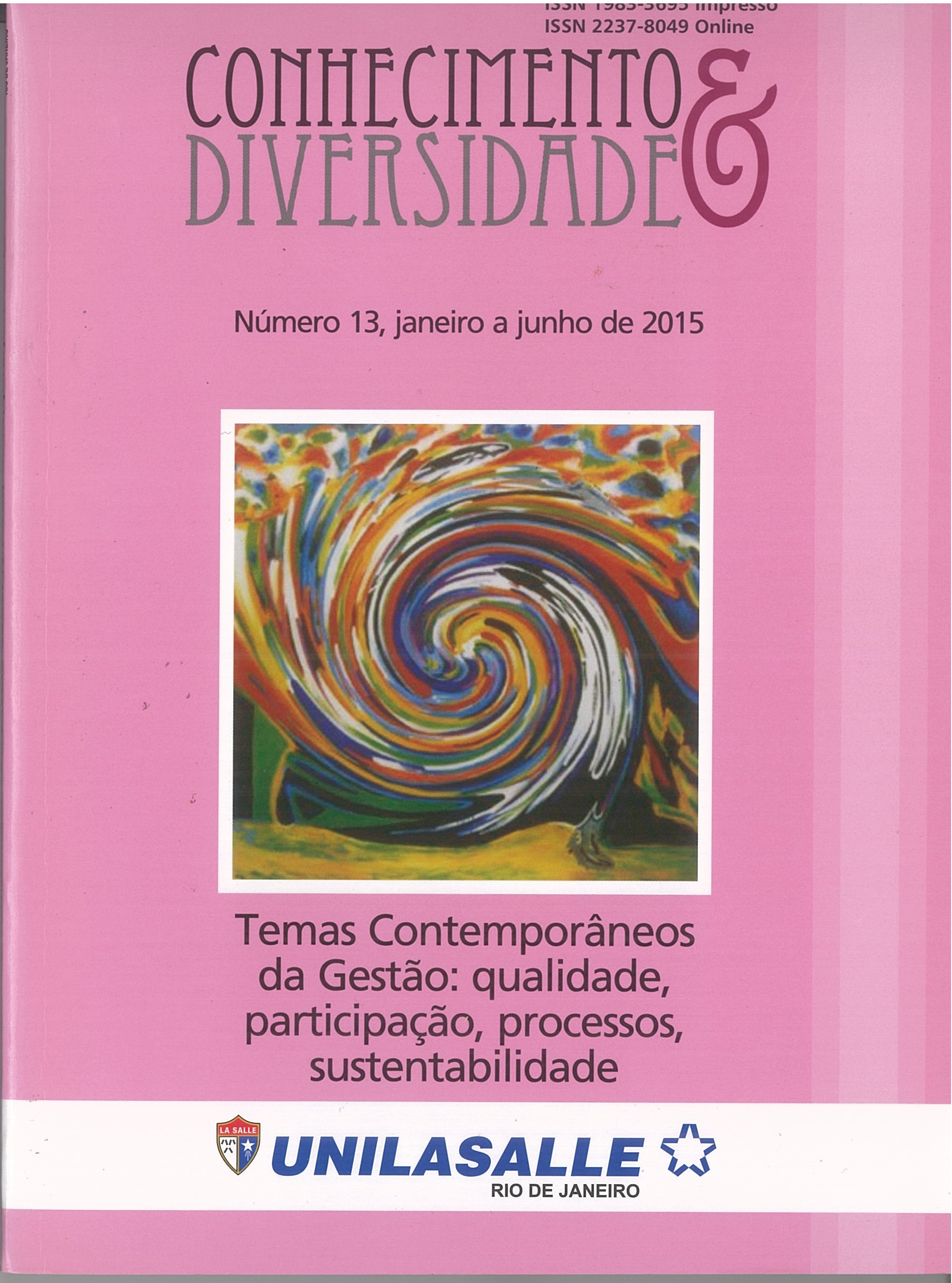Acreditação do ensino superior nos países lusófonos: reflexões e práticas em Portugal e Brasil.
DOI:
https://doi.org/10.18316/1889Keywords:
Agências de acreditação. Ensino superior. Acreditação e avaliação. ENADE. A3ES.Abstract
Accreditation of higher education in lusophone countries: reflections and practies in Portugal and Brazil
Este artigo propõe o estudo da qualidade do ensino superior em Portugal e no Brasil. Os objetivos são discutir os sistemas de acreditação em vigor nas agências e comparar os instrumentos públicos de avaliação e acreditação de ciclos da Agência de Avaliação e Acreditação do Ensino Superior (A3ES) em Portugal e do Sistema Nacional de Avaliação da Educação Superior (SINAES) no Brasil. A metodologia utilizada baseou-se em dados secundários e documentais coletados das agências, realizando-se análise qualitativa com base nas categorias de avaliação. Os resultados demonstram que a atuação das agências tem apresentado similaridades em seus mecanismos de garantia, mesmo considerando-se sua distância geográfica e políticas educacionais distintas. As contribuições assentam na confrontação das metodologias de acreditação em uso pelas agências e na análise quanto à forma de validação das políticas de qualidade no ensino superior.
Palavras-chave: Agências de acreditação. Ensino superior. Acreditação e avaliação. ENADE. A3ES.
Abstract
This article proposes a study of the higher education quality in Portugal and Brazil. The objectives are to discuss the current accreditation systems of public agencies and to compare the instruments of evaluation and accreditation of operating cycles of the Agency for Assessment and Accreditation of Higher Education (A3ES) in Portugal and the National System of Higher Education Assessment (SINAES) in Brazil. The methodology used was based on secondary data and documents collected from agencies, leading to a qualitative analysis based on the evaluation categories. The results demonstrate that the performance of the agencies have shown similarities in their mechanisms of warranty even when considered their geographical distance and different educational policies. Contributions are based on the confrontation of the accreditation methodologies in use by agencies and the analysis on the form of validation of quality policies in higher education.
Keywords: Accreditation Agencies. Higher education. Accreditation and evaluation. ENADE. A3ES.
References
AGÊNCIA DE AVALIAÇÃO E ACREDITAÇÃO DO ENSINO SUPERIOR (A3ES). Normas de Avaliação Externa. Portugal: A3ES, 2011. Disponível em: <http://www.a3es.pt/sites/default/files/NormasAvaliacaoExterna2011.pdf>. Acesso em: 13 set. 2014.
ANDERSON, G. Correlational research. In: ANDERSON, G., ARSENAULT, N. (Coord.). Fundamentals of educational research. London: Falmer Press Teachers Library, 1999, p. 111-118.
BRENNAN, J; SHAH, T. Managing quality in higher education. An international perspective on institutional assessment and change. Buckingham: Open University Press, 2000.
DGES, D. D. E. Ensino superior público universitário, politécnico, militar e policial. Lisboa: DGES/MCT, 2009.
DILL, D.D. Designing academic audit: lessons learned in Europe and Asia. Quality in Higher Education, v. 6, n. 3, p. 187–207, 2000a.
_____. Capacity building as an instrument of institutional reform: improving the quality of higher education through academic audits in the UK, New Zealand, Sweden and Hong Kong, Journal of Comparative Policy Analysis: Research and practice, v. 2, n. 2, p. 211–234, 2000b.
FONSECA, M. Acreditação ano zero. Os sistemas internos de garantia de qualidade das instituições de ensino superior em Portugal. Agência de Avaliação e Acreditação do Ensino Superior. A3ES, Portugal, 2010. Disponível em: . Acesso em: 6 ago. 2014.
HIGHER EDUCATION FUNDING COUNCIL OF ENGLAND (HEFCE). Quality Assessment. Consultation Paper. England, 1992.
_____. Research assessment exercise 2008: the outcome. HEFCE, Bristol, 2008. Disponível em: <http://www.hefce.ac.uk/pubs/year/2008>. Acesso em: 10 ago. 2014.
HIGHER EDUCATION QUALITY COUNCIL (HEQC). Learning from audit, London,1994.
INSTITUTO NACIONAL DE ESTUDOS E PESQUISAS EDUCACIONAIS ANÍSIO TEIXEIRA (INEP). A trajetória do Inep. São Paulo, 2010a. Disponível em: <http://www.inep.gov.br/institucional>. Acesso em: 23 mar. 2014.
_____. Sistema nacional de avaliação da educação superior: da concepção à regulamentação. 4 ed. Brasília: INEP, 2007.
_____. SINAES. São Paulo, 2010b. Disponível em: <http://www.inep.gov.br/superior/sinaes> Acesso em: 23 mar. 2014.
KELLEY, C., PINGSHENG, T., BEOM-JOON, C. A review of assessment of student learning programs at AACSB schools: a Dean's perspective. Journal of Education for Business, v. 85, n. 5, p. 299-306, 2010.
KNUPFER, N., MCLELLAN, H. Descriptive research for educational communications and technology. New York: Macmillan USA, 1996.
MASSY, W. F. Teaching and learning qualityâ€process review: the Hong Kong programme. Quality in Higher Education, v. 3, n. 3, p. 249-262, 1997.
_____. Academic audit for accountability and improvement. In: BURKE, J. C. (Coord.). Achieving accountability in higher education: balancing public, academic and market demands. San Francisco: Jossey-Bass, 2005, p. 173-197.
_____. Education quality audit as applied in Hong Kong’. In: DILL, D. D; Beerkens, M. (Coord.) Public policy for academic quality: analyses of innovative policy instruments. Dordrecht: Springer, 2010, p. 203-225.
MELTZOFF, J. Critical thinking about research – psychology and related fields. Washington DC: American Psychology Association, 1998.
MERTENS, D. M. Research methods in education and psycology: integrating diversity with quantitative e qualitative approaches. London: Sage Publications, 1998.
PRINGLE, C., MICHEL, M. Assessment practices in AACSB-Accredited business schools. Journal of Education for Business, v. 82, n. 4, p. 202-211, 2007.
VIOTTI, E. B. Doutores 2010: estudos da demografia da base técnico-científica brasileira. Brasília: Centro de Gestão e Estudos Estratégicos (CGEE), 2010.
Downloads
Published
Issue
Section
License
As recommended by the Public Knowledge Project, RCD adopts for its articles a CREATIVE COMMONS Attribution CC BY 4.0 license.
This license allows others to distribute, remix, adapt and build upon your work, even commercially, as long as they credit you for the original creation.
This is the most appropriate license offered.
Recommended for maximum dissemination and use of licensed materials.



